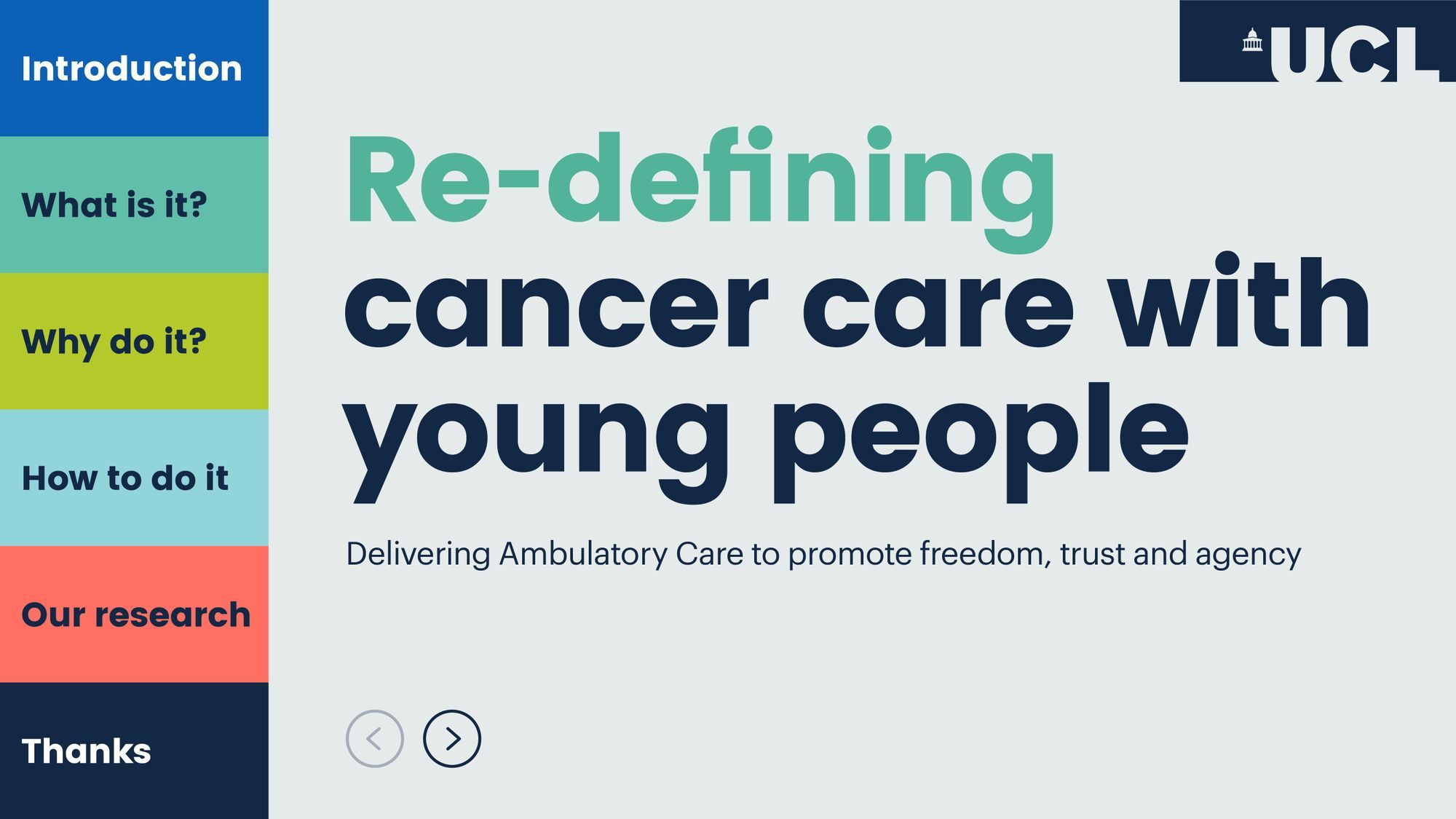Summary
Complex cancer treatment usually given as an inpatient throughout the NHS has been transitioned to an outpatient pathway in a few UK cancer centres. Called Ambulatory Care, this treatment modality is made possible using portable infusion pumps and with patients taking responsibility for aspects of their clinical monitoring themselves. Patients have 24-hour access to specialist advice and stay close to the hospital overnight in case of need.
Within young people’s cancer services in particular, the drive for the development of Ambulatory Care (AC) was its potential to offer an enhanced, less clinical experience of cancer treatment. Anecdotally, we knew that young people liked receiving care away from the inpatient ward, but little was empirically known about how AC meets the needs and supports the well being of patients and their families.
With growing interest in developing AC, this research set out to explore experiences of both delivering and receiving this: building knowledge to inform current and future services for those aged 16-24 and their families. A key aim was to understand whether refinements to the service were needed to better and more equitably support young people and their companions.
Undertaken at University College Hospitals NHS Foundation Trust (UCLH), this was a participatory research project in which young people and companions from a wider cancer community became co-researchers, contributing to every stage and phase of this qualitative research. Funded by an NIHR doctoral fellowship, this research offers the first comprehensive exploration of stakeholder experience of the AC pathway within the UK.
This research was funded by NIHR through a Clinical Doctoral Research Fellowship [NIHR-ICA-CDRF-2018-04-034] awarded to Alison Finch, a cancer nurse.

 START DATE AND DURATION: April 2019
START DATE AND DURATION: April 2019

